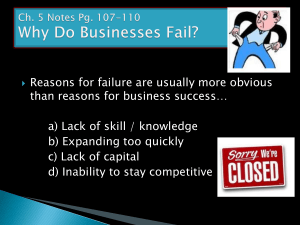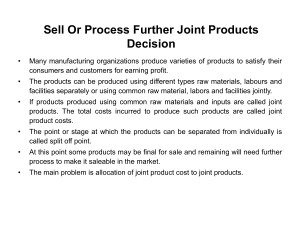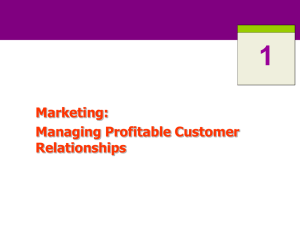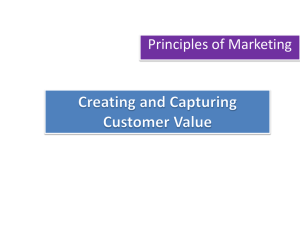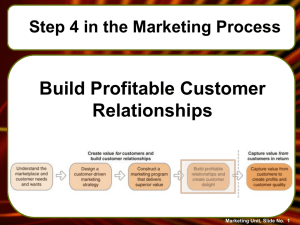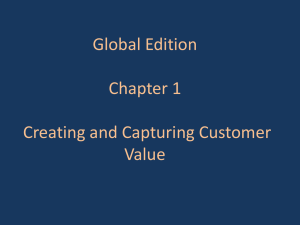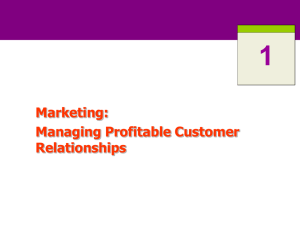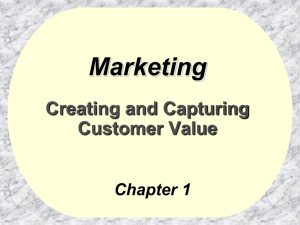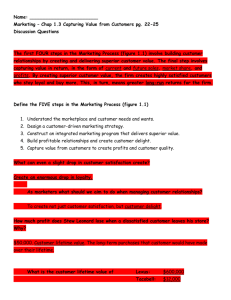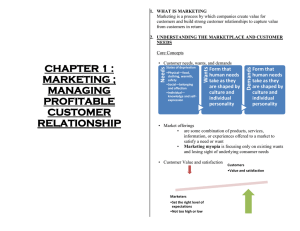Marketing
advertisement
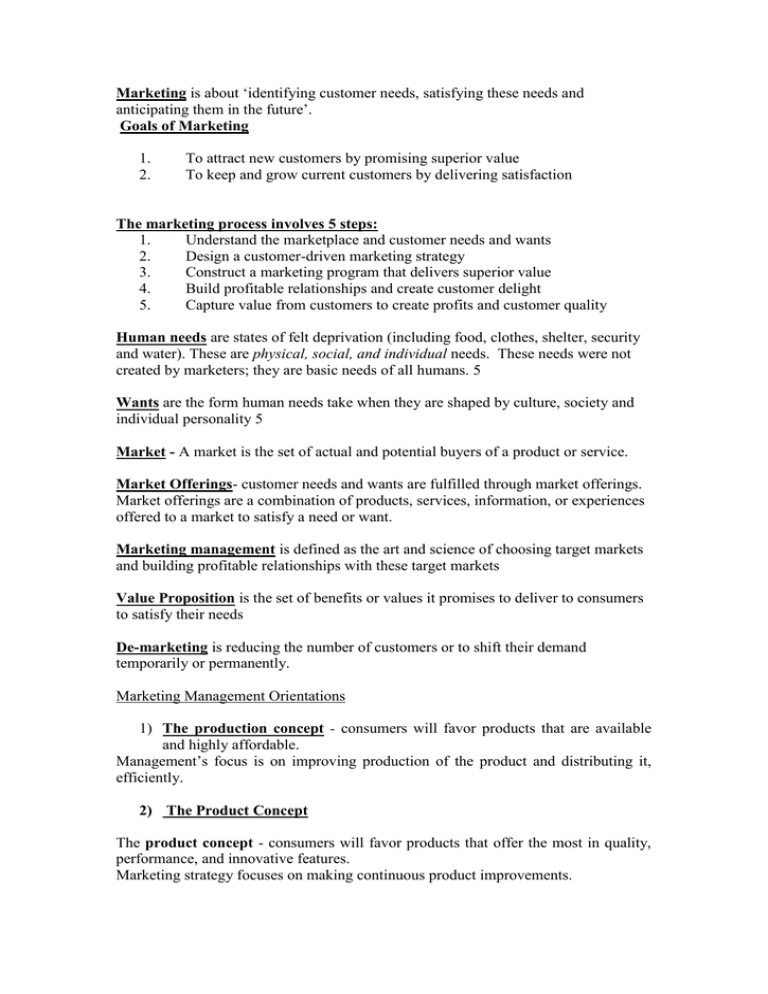
Marketing is about ‘identifying customer needs, satisfying these needs and anticipating them in the future’. Goals of Marketing 1. 2. To attract new customers by promising superior value To keep and grow current customers by delivering satisfaction The marketing process involves 5 steps: 1. Understand the marketplace and customer needs and wants 2. Design a customer-driven marketing strategy 3. Construct a marketing program that delivers superior value 4. Build profitable relationships and create customer delight 5. Capture value from customers to create profits and customer quality Human needs are states of felt deprivation (including food, clothes, shelter, security and water). These are physical, social, and individual needs. These needs were not created by marketers; they are basic needs of all humans. 5 Wants are the form human needs take when they are shaped by culture, society and individual personality 5 Market - A market is the set of actual and potential buyers of a product or service. Market Offerings- customer needs and wants are fulfilled through market offerings. Market offerings are a combination of products, services, information, or experiences offered to a market to satisfy a need or want. Marketing management is defined as the art and science of choosing target markets and building profitable relationships with these target markets Value Proposition is the set of benefits or values it promises to deliver to consumers to satisfy their needs De-marketing is reducing the number of customers or to shift their demand temporarily or permanently. Marketing Management Orientations 1) The production concept - consumers will favor products that are available and highly affordable. Management’s focus is on improving production of the product and distributing it, efficiently. 2) The Product Concept The product concept - consumers will favor products that offer the most in quality, performance, and innovative features. Marketing strategy focuses on making continuous product improvements. 3) The Selling Concept The selling concept - consumers will not buy enough of the firm’s products unless it undertakes a large-scale selling and promotion effort. This is typically for products which buyers do not normally think of buying, such as insurance. 4) The Marketing Concept The marketing concept - achieving organizational goals depends on knowing the needs and wants of target markets and delivering satisfaction better than competitors do. 5) The Societal Marketing Concept Societal marketing concept is the idea that a company should make good marketing decisions by considering consumers’ wants, the company’s requirements, consumers’ long-term interests, and society’s long-run interests Customer Relationship Management is the overall process of building and maintaining profitable customer relationships by delivering superior customer value and satisfaction Share of Customer: Share of customer is defined as the share the company gets of customers purchasing in their product categories Customer Equity: Customer equity is the total combined customer lifetime values of all of the company’s current and potential customers. Building the Right Relationships with the Right Customers “Strangers” show low potential profitability and little projected loyalty. The relationship management strategy for these customers is simple: Don’t invest anything in them. “Butterflies” are potentially profitable but not loyal. The company should use promotional blitzes to attract them, create satisfying and profitable transactions with them, and then cease investing in them until the next time around. “True friends” are both profitable and loyal. There is a strong fit between their needs and the company’s offerings. The firm wants to make continuous relationship investments to delight these customers and retain and grow them. “Barnacles” are highly loyal but not very profitable. There is a limited fit between their needs and the company’s offerings.
